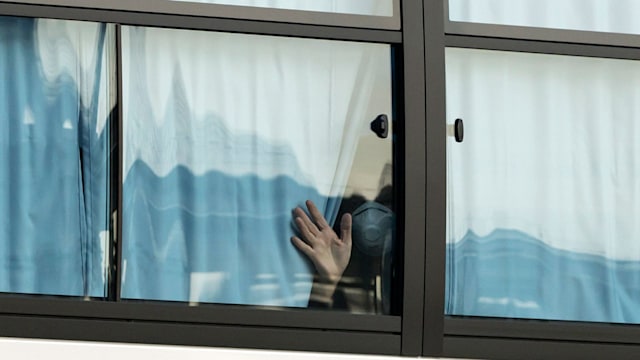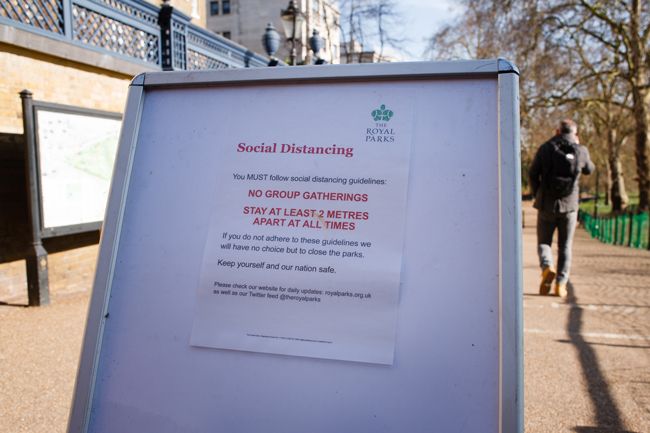As the numbers of those suffering from COVID-19 rise, the UK government has implemented strict social-distancing rules, telling the British public that this method of self-isolation is vital when it comes to slowing the spread of the coronavirus. But what exactly is social distancing, and must you avoid all types of physical contact? HELLO! explains all…
WATCH: How to manage coronavirus anxiety
What is social distancing?
Health officials across the globe have asked citizens to practise social distancing – that means remaining indoors, refraining from touching and avoiding crowds. In short: stay indoors and away from other people as much as possible.
When did social distancing start in the UK?
MORE: Coronavirus: Living in lockdown - what it's really like
On 12 March, the UK government announced that it was moving out of the "contain" phase and into the "delay" stage. A government spokesperson explained: "In the coming weeks, we will be introducing further social distancing measures for older and vulnerable people, asking them to self-isolate regardless of symptoms."
What are the rules of social distancing?
The government has outlined six social-distancing rules that need to be followed as much as is possible. These are:
- Avoid contact with someone who is displaying symptoms of coronavirus (COVID-19). These symptoms include high temperature and/or new and continuous cough.
- Avoid non-essential use of public transport when possible.
- Work from home, where possible. Your employer should support you to do this. Please refer to employer guidance for more information.
- Avoid large and small gatherings in public spaces, noting that pubs, restaurants, leisure centres and similar venues are currently shut as infections spread easily in closed spaces where people gather together.
- Avoid gatherings with friends and family. Keep in touch using remote technology such as phone, internet, and social media.
- Use telephone or online services to contact your GP or other essential services.
Can I visit my family and/or partner?
In short, no. The government has advised the public to avoid gatherings with friends and family. On Monday, Boris Johnson told the British public that they were only able to leave their home alone or with members of their household. He added no one should be meeting friends, and if a friend asks to meet, you should say no. The Prime Minister added that no one should be meeting family members who do not live with them at home.
MORE: How Meghan Markle's patronage is helping support women during coronavirus crisis
Has the UK ignored social distancing rules?
Over the weekend, members of the British public faced criticism for "ignoring" social distancing advice. Many photos emerged of people across the country flocking to parks to socialise in the sunny weather, and in London some flower markets remained open, meaning dozens of people were packed into tight spaces together. Such incidents prompted Boris Johnson to introduce stricter social-distancing rules on Monday, even giving police powers to enforce stricter coronavirus lockdowns through fines and dispersing gatherings.
Can I practise social distancing at work?
The government has advised that where possible, people should work from home. However, this does not include key workers such as doctors, nurses, teachers, food delivery staff, bank and airport workers and public transport staff. These workers are advised to remain two metres away from each other on public transport, to avoid touching their faces and to wash hands frequently and for twenty seconds at a time. Where possible, face masks and gloves should also be worn.
Are there any safe ways to socialise?
When it comes to socialising, technology is your new best friend. FaceTime, Skype and similar apps are excellent ways to stay in touch with loved ones while self-isolating. Other ways to stay in touch include by post or phone.
Like this story? Sign up to our newsletter to get other stories like this delivered straight to your inbox.


